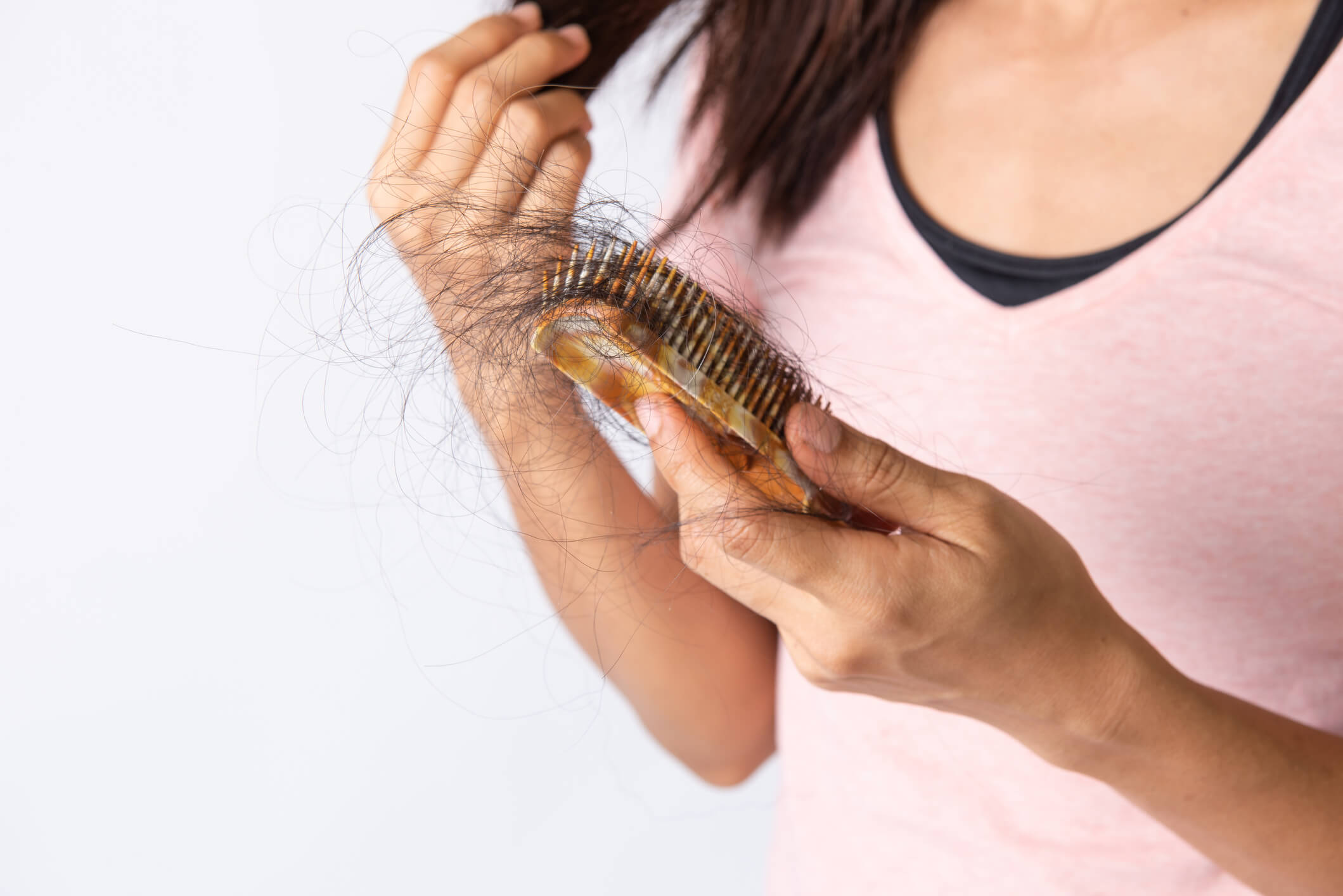Anxiety and Hair Loss: 3 Ways Stress Can Affect Your Locks!
We all know too much stress isn’t good for you. Stress can have many effects on the body, some of which you may find surprising. One such consequence of chronic stress is hair loss.
Some people experience stress-induced hair loss to a greater degree than others, and the key to reversing hair loss is still unclear. The good news is you can help minimize hair loss by practicing relaxation techniques and recognizing when to cut sources of stress from your life.
Check out the most common types of hair loss that can result from chronic stress.
#1: Shortened life cycle of hair
One bad day won’t cause your hair to fall out. Hair loss is usually the result of chronic stress that’s present over a long period of time. People who experience chronic stress may notice their hair start to thin out. Stress can shorten the lifespan of hair, causing it to fall out prematurely.
The hair doesn’t fall out all at once—rather, the hair follicles are negatively affected at random. Hair continues to grow, but it falls out of the scalp earlier than normal. This leads to the appearance of thinning hair on the head. It’s possible to regrow a full, healthy head of hair by practicing stress management techniques.
#2: Round patches and sudden baldness
Unlike the previous condition, extreme prolonged stress may cause someone to become completely bald. This occurs when the immune system starts attacking hair follicles on the head and other parts of the body. Rapid hair loss can cause large, round patches of baldness, which inevitably leads to losing the hair altogether. People who experience sudden baldness often go through cycles of losing and regrowing hair over the course of their life.
Experts aren’t exactly sure what causes this condition, but many suspect chronic stress is the main culprit. More research is needed to understand why chronic stress causes the immune system to trigger widespread baldness. Since the definitive cause is unknown, there’s no cure at this time. Doctors recommend avoiding stressful situations and taking a daily hair growth supplement, although results will vary.
#3: Uncontrollable urges to pull hair
Many people develop nervous ticks in times of stress. Nail biting is the most common one, but others might experience the uncontrollable urge to pull hair out of their scalp. The above-mentioned forms of hair loss result from a chemical imbalance in the body. By contrast, hair pulling is a behavioral concern stemming not only from chronic stress but also negative emotions like sadness, loneliness and boredom.
People who don’t live with the condition may argue that someone with a hair pulling tendency can simply stop whenever they want. However, the key to solving this issue isn’t so cut and dry. Resisting the urge to pull often requires working with a psychologist who can teach patients about cognitive behavioral therapy.

Tips for managing everyday stress
Life is hard enough as is—the last thing you need to worry about is going bald! Hair loss is often embarrassing, which can lead to even more stress. While there’s no magic pill to cure these hair loss conditions, you can help prevent them by learning to manage stress. Here are a couple tips that can promote healthy, luscious hair:
- Learn your triggers and avoid them: People who struggle with hair loss may notice excessive thinning or hair pulling during times of extreme stress. Stress isn’t completely avoidable, but it’s possible to minimize symptoms by recognizing when it’s time to remove yourself from an unhealthy situation. You might be taking on too much responsibility at work or dealing with a tense family dynamic. It’s okay to set boundaries in life if it means protecting your health.
- Practice stress-relief techniques: Little stressors from everyday life can add up over time. To avoid the negative consequences of chronic stress, maintain a sense of calm through daily stress-relief activities. Build rituals into your schedule like meditation, journaling, mindfulness or a warm bath. Prioritizing your mental health goes a long way in preserving your physical health, too!
- Speak with a psychologist: Don’t be afraid to ask for help. It’s better to address underlying sources of stress early on, rather than wait until you’re simultaneously battling stress-related health problems. You can’t always make stress go away with deep breathing exercises or a bubble bath! No matter what you’re going through, there’s a psychologist who can help.
Remember, just because you feel stressed from time to time doesn’t necessarily mean you’ll experience hair loss. Worrying about hair loss will only make you even more stressed out! Learn how to cope with the stressors in your life and never hesitate to consult a physician if you’re concerned about the effects of stress on your health.


Leave a comment